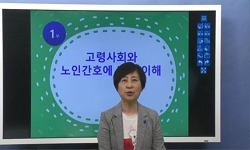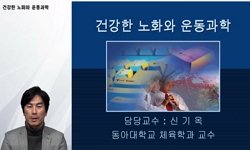Observational studies and laboratory research support cardioprotective effects of menopausal hormone treatment (MHT). However, cardioprotective effects of MHT were not confirmed by randomized clinical studies that were made up of subjects who were wel...
http://chineseinput.net/에서 pinyin(병음)방식으로 중국어를 변환할 수 있습니다.
변환된 중국어를 복사하여 사용하시면 됩니다.
- 中文 을 입력하시려면 zhongwen을 입력하시고 space를누르시면됩니다.
- 北京 을 입력하시려면 beijing을 입력하시고 space를 누르시면 됩니다.

Review : Menopausal Hormone Treatment and the Progression of Vascular Disease = Review : Menopausal Hormone Treatment and the Progression of Vascular Disease
한글로보기https://www.riss.kr/link?id=A82388008
- 저자
- 발행기관
- 학술지명
- 권호사항
-
발행연도
2010
-
작성언어
Korean
- 주제어
-
KDC
516.000
-
등재정보
KCI등재
-
자료형태
학술저널
- 발행기관 URL
-
수록면
71-78(8쪽)
- 제공처
-
0
상세조회 -
0
다운로드
부가정보
다국어 초록 (Multilingual Abstract)
Observational studies and laboratory research support cardioprotective effects of menopausal hormone treatment (MHT). However, cardioprotective effects of MHT were not confirmed by randomized clinical studies that were made up of subjects who were well-beyond the time of menopausal symptoms and were of advanced chronological age when they began hormone treatment (HT). The differences in study outcomes most likely reflect age-related differences in cardiovascular risk factors such as hypertension and metabolic syndromes. As well, data from the randomized clinical trial (RCT)s confirmed the presence of actual cardiovascular disease (CVD) in many of the RCT subjects prior to beginning HT. Therefore, beginning MHT early seems crucial since older women are at greater risk for the presence of risk factors and sub-clinical CVD. Older women also are possible targets of hormonally related thrombosis because of their underlying vascular disease. The need for early prophylaxis is convenient since most women seek treatment for symptoms within the first few years of menopause. This review addresses issues regarding optimization of the initiation of MHT for cardioprotection.
동일학술지(권/호) 다른 논문
-
한국 폐경 여성에서 경구 에스트로겐 종류에 따른 유방 치밀도에 대한 Medroxyprogesterone Acetate의 효과
- 대한폐경학회
- 이동윤 ( Dong Yun Lee )
- 2010
- KCI등재
-
폐경 전후 여성에서 상완-발목 맥파속도에 영향을 미치는 요인의 비교
- 대한폐경학회
- 정찬경 ( Chan Kyung Chung )
- 2010
- KCI등재
-
- 대한폐경학회
- 최희정 ( Hee Jeong Choi )
- 2010
- KCI등재
-
여성의 갱년기 증상에 대한 석류농축액의 유효성 및 안전성을 평가하기 위한 단일기관, 무작위 배정, 이중맹검, 위약대조군 임상시험
- 대한폐경학회
- 안기훈 ( Ki Hoon Ahn )
- 2010
- KCI등재




 KISS
KISS






